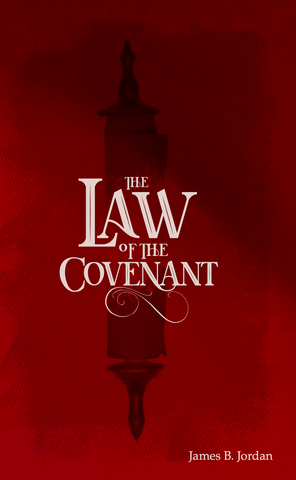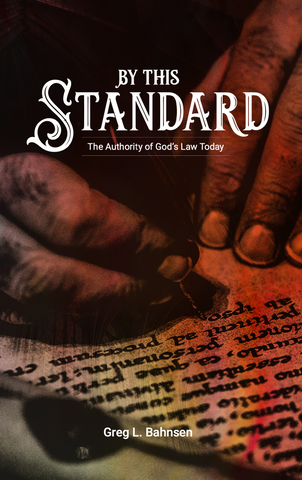Father’s Day took an unexpected turn when a photo of Senator Chuck Schumer grilling a raw hamburger topped with a slice of cheese sparked a wave of reactions. To many, it was just an amusing snapshot of a public figure appearing out of his element in the culinary world. Sen. Schumer the Everyman. However, beneath the surface of this seemingly trivial incident lies a rich tapestry of biblical tradition and theological insight that warrants closer examination.
The Grilling Faux Pas
First, let’s set the scene: Chuck Schumer, a Leftist Democrat, decides to grill a hamburger on Father’s Day. In the photo, the hamburger patty is unmistakably raw, yet it’s already topped with a slice of cheese. For the uninitiated, the standard grilling practice is to cook the hamburger patty nearly to completion before adding the cheese, allowing it to melt properly over the cooked meat. This error alone provided fodder for many jokes and critiques online, as Schumer’s apparent lack of grilling skills became a topic of light-hearted discussion. If he’s not able to grill a cheeseburger properly, who thinks he can legislate properly? I didn’t need this incident to answer the question.
The Kosher Conundrum
But there’s something about the raw meat and cheese scene that seemed to fly over the heads of most who had commented. According to Jewish dietary laws, particularly those followed by Orthodox Jews, mixing meat and dairy is strictly prohibited. This prohibition is rooted in the Torah, specifically in the commandment found in Exodus 23:19, “Do not boil a kid in its mother’s milk.” The oral tradition, which interprets and expands upon the written Torah, has long held that this verse implies a broader separation of meat and dairy products.
For Schumer, a self-proclaimed adherent to the Jewish faith, this act was not just a culinary misstep but a significant breach of kosher law. The irony of a Jewish man, ostensibly adhering to these ancient traditions, blatantly violated them in such a public manner.
Understanding the Biblical Commandment
To truly grasp the depth of this incident, one must understand the biblical commandment behind it. The verse “Do not boil a kid in its mother’s milk” appears three times in the Torah (Ex. 23:19; 34:26; Deut. 14:21). This repetition underscores its importance in Jewish law. But what does it really mean?
Contrary to a superficial reading, the prohibition against boiling a kid in its mother’s milk is not merely about dietary habits. As theologian James Jordan, author of The Law of the Covenant," has pointed out, biblical commandments often carry deeper, symbolic meanings. Boiling a young goat in its mother’s milk—a substance meant to nurture life—was considered a perverse act that symbolized the corruption of a natural, God-given process.

The Law of the Covenant
If we take a man-centered approach to these laws, we might say that the purpose of this legislation is only to ensure human prosperity. Such an approach to the law of God misses the most basic point. These laws show us God's own genuine personal care for His world, and as such these laws cannot be altered by human whim. To be sure, the Bible is man-oriented, and thus obedience to these laws will improve human life; but the laws are God's, and cannot be changed by man. Thus, as we examine the laws in Exodus 21-23, our first concern must be the glory of God, not whether these laws seem right to us sinful men. If we start with God, we will soon see how these laws also improve human life.
Buy NowJesus and the Fulfillment of the Law
For Christians, understanding Old Testament laws involves seeing their fulfillment in the life and work of Jesus Christ. In Luke 24, Jesus explains to his disciples how the Old Testament Scriptures pointed to Him. This includes the seemingly obscure commandments, such as the prohibition against boiling a kid in its mother’s milk.
From a Christian theological perspective, the act of boiling a kid in its mother’s milk can be seen as a metaphor for the rejection and crucifixion of Jesus. The religious leaders of the day, who were supposed to nurture and guide the people, instead condemned and crucified Jesus, the very source of spiritual nourishment. In this sense, they ‘boiled’ the ‘kid’—Jesus—in the very ‘milk’ of the true covenant that Jesus came to fulfill. This was done in Jerusalem, the mother, if you will, of the covenant.
How awful if the mother uses her own milk to destroy her own seed!… Jerusalem is the mother of the seed (Ps. 87:5; Gal. 4:26ff.). When Jerusalem crucified Jesus Christ, her Seed, she was boiling her kid in her own milk. In Revelation 17, the apostate Jerusalem has been devouring her faithful children: “And I saw the woman drunk with the blood of the saints and with the blood of the witnesses of Jesus.” Her punishment, under the Law of Equivalence, is to be devoured by the gentile kings who supported her (Rev. 17:17)[1]
Schumer’s Symbolic Transgression
Returning to Chuck Schumer, his action of placing cheese (dairy) on meat (the hamburger) can be viewed symbolically through this theological lens. Schumer was virtue signaling by mentioning his daughter and her “wife.” Their marriage is a flagrant violation of Biblical Law (Lev. 18:22; 20:13; 27:21; Rom. 1:24-27).
In a broader sense, Schumer’s act can be seen as emblematic of a cultural trend where traditional values and religious principles are often overlooked or treated with indifference. It raises questions about the integrity and authenticity of public figures who profess a certain faith or adherence to tradition but fail to embody those principles in their actions.
A Lesson in Symbolism and Faith
Chuck Schumer’s grilling mishap (the post was eventually deleted) is more than just an amusing anecdote; it serves as a springboard for deeper reflection on biblical commandments, their symbolic meanings, and their relevance today.
In the end, whether you’re grilling a hamburger or making decisions that impact the lives of many, remember that faith and tradition are not just about outward compliance but about understanding and living out the deeper principles they represent. These lessons underscore the importance of adhering to a higher standard, lest we fall victim to the same hubris that has brought down civilizations before us.

By This Standard: The Authority of God's Law Today
For over a century, most conservative Christian social thinkers have denied the continuing validity of God's law. Some of them have even gone so far as to argue that God's law is inherently tyrannical. But God's law is not only just and sufficient, it is obtainable and ideal for civilization. Christianity has the opportunity to overcome all evil with good, and the basis for all good is in the richness of God's law.
Buy Now[1] James B. Jordan, The Law of the Covenant: An Exposition of Exodus 21-23 (Powder Springs, GA: American Vision [1984] 2022), 192, 272-277. Jordan has developed his thesis more fully in his unpublished work Studies in Food and Faith.

